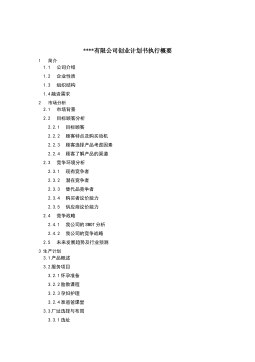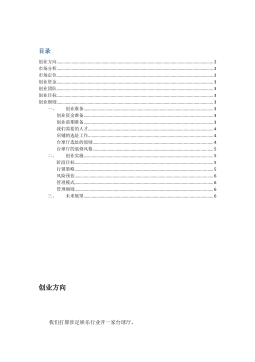基于《纽约时报》的英语名词非范畴化研究
VIP免费
ii
Abstract
Decategorization is a way to ease the tension between finite linguistic means and
infinite new concepts. In the field of linguistics, decategorization is a process during
which some members of a particular category gradually lose their categorial features
under certain circumstances. Before the recategorization, those members are under an
unstable ,intermediate state. In other words, between the original category and the
forthcoming new one, there is a vague intermediate category. In the case of the noun
decategorization, it means the members of nouns lose some prototypical features of
their original category semantically and functionally. Meanwhile, they obtain some
features of a new category, such as categories of adjective, verb, adverb, etc. Viewed
from the cognitive aspect, noun decategorization is a kind of creative method of
thinking and a process of cognition, which caters to the changing world and the rapid
development of the modern society.
The purpose of this study is to dig out the English noun decategorization
phenomena in the natural corpus. Through the analysis of the real data, the author will
explore how the mechanism of English noun decategorization works in line with the
two main theoretical principles: meaning abstraction and Fauconnier’s mapping theory.
Main results and findings of the study are as follows:
A large number of English noun decategorization occurs in the natural corpus.
After the process of decategorization, English nouns are bound to lose their original
categorial features and take on some new characteristics belonging to other categories at
the same time. There are four major tendencies that English nouns are likely to go after
the process of decategorization: adjectivalization, verbalization, adverbalization, and
combination with two prepositions, each of which includes many sorts of subgroups.
The subgroups of the adjectivalization are the most diversified among the four
tendencies. According to the above classification, the gradient feature of the English
noun decategorization is clearly and deeply reflected.
With the data analysis, the author raises a Dynamic Model of English Noun
Decategorization. Under the online context, the communicator will first extract the
specification from the noun to be the abstract meaning. Afterwards, through one of the
iii
mapping processes, the abstract meaning will be projected to another domain to build a
new image. Once the new image is constructed, the process of noun decategorization is
successful. Throughout the whole procedure, the salience principle is permeated
everywhere. On the basis of the above model, attempt will be made to explicate the
feasible mechanism of the English noun decategorization. These findings will help
audience deconstruct the English noun decategorization more completely, which could
facilitate the reinforcement of the communicative effects. Meanwhile, it stimulates the
gradual evolvement of the English noun decategorization in various communicative
fields.
Keywords: New York Times, English nouns, Decategorization,
Categorial features, Meaning abstraction, Mapping
iv
摘 要
非范畴化是缓解有限语言形式与无限新鲜概念之间矛盾的一种方式。从语言
研究层面来说,非范畴化是指在一定的条件下范畴成员逐渐失去范畴特征的过程。
范畴成员在非范畴化之后、重新范畴化之前处于一种不稳定的状态,即在原有的
范畴和即将进入的新范畴之间会存在模糊的中间范畴,这类中间范畴丧失了原有
范畴的某些典型特征,同时也获得了某些新范畴的特征。而对于名词的非范畴化
来说,它是指名词成员在失去他们原有范畴的典型语义及功能特征的同时获得其
它范畴特征,如动词、形容词、副词等等的一个过程。从认识方法层面来说,非
范畴化是一种思维创新方式和认知过程,逐渐满足永恒世界和现代社会的发展变
化。
本文的研究目的在于发现自然语料中英语名词的非范畴化现象。通过对《纽
约时报》中非范畴化语料的研究,进一步探讨英语名词的非范畴化是如何按照语
义抽象理论和概念映射理论进行运作的。通过对语料的详细分析阐述,作者得出
如下研究结果:
自然语料中存在大量的名词非范畴化现象。英语名词在非范畴化之后,有在
丧失原有范畴特征的同时呈现其他范畴特征的倾向。英语名词非范畴化的倾向有
四大类,即形容词化、动词化、副词化以及介词短语化。每一个大类中又存在许
多小的子集,其中形容词化的子集最为多样化。名词非范畴化的不同倾向以及每
一倾向中子集的多样化清晰地反映了英语名词非范畴化程度的高低存在差异性。
根据以上分析,作者提出了一个关于英语名词非范畴化的动态模型,即传播
者于在线情境下从名词中抽象出意义,然后通过映射理论将该意义投射到其他域
中建立新的意象。突显原则渗透在整个过程之中。作者试图通过该模型来解释英
语名词非范畴化的可行性工作机制。该研究发现将有助于受众深刻解构英语名词
的非范畴化过程,从而媒体的传播效果将大大增强;同时,促进了英语名词非范
畴化在不同传播领域中的程度深化和渐进发展。
关键词:纽约时报 英语名词 非范畴化 范畴特征 语义抽象 映射
CONTENTS
Acknowledgements .......................................................................................................... i
Abstract ........................................................................................................................... ii
摘 要 ............................................................................................................................... iv
Chapter One Introduction ............................................................................................. 1
§1.1 Background of the Study .......................................................................................1
§1.2 The General Purpose and Research Methodology of This Study ......................... 3
§1.3 The Organization of the Thesis ............................................................................. 4
Chapter Two An Overview on Decategorization and Noun Decategorization ......... 6
§2.1 Decategorization ....................................................................................................6
§2.1.1 Definition ........................................................................................................6
§2.1.2 Correlation between Decategorization, Recategorization and Categorization.
................................................................................................................................... 7
§2.1.3 Correlation between Decategorization, Grammaticalization and Conversion.
................................................................................................................................... 7
§2.2 Previous Studies of Noun Decategorization ..........................................................9
§2.2.1 Categorial Features of English Nouns ............................................................ 9
§2.2.2 Studies on Noun Decategorization Home and Abroad .................................10
Chapter Three Theoretical Foundations for English Noun Decategorization ........ 12
§3.1 Salience/Attention ............................................................................................... 12
§3.2 Meaning Abstraction ........................................................................................... 14
§3.3 Mapping Theory .................................................................................................. 19
§3.3.1 Projection Mapping ...................................................................................... 19
§3.3.2 Pragmatic Function Mapping ....................................................................... 21
§3.3.3 Schema Mapping .......................................................................................... 22
Chapter Four English Noun Decategorization Based on New York Times .............. 25
§4.1 The Design and Implementation of the Study on New York Times .................... 25
§4.2 Four Tendencies of Noun Decategorization Based on the Data ......................... 26
§4.2.1 Adjectivalization ...........................................................................................27
§4.2.2 Verbalization ................................................................................................ 38
§4.2.3 Adverbalization ............................................................................................ 40
§4.2.4 Combination with Two Prepositions ............................................................ 41
§4.3 Two Factors in English Noun Decategorization:Online Context and Mutual
Knowledge .................................................................................................................. 42
§4.4 Mechanism of English Noun Decategorization .................................................. 43
§4.5 Summary ............................................................................................................. 45
Chapter Five Conclusion ..............................................................................................47
§5.1 Major Findings of the Study ................................................................................48
§5.2 Limitations of the Study and Suggestions for Further Research .........................49
Bibliography .................................................................................................................. 50
在校期间公开发表的论文 ............................................................................................ 54
List of Figures and Tables
Figure3-1 Metaphorical mapping process of (17)……………………………………20
Figure 3-2 Pragmatic function mapping process between noun and its function……21
Figure 3-3 Integration of the grammar space and the conceptual space……………..23
Table 4-1 Statistics of the collected news items……………………………………...26
Table 4-2 Classification and frequency of English noun decategorization in NYT….27
Table 4-3 Classification and frequency of adjectivalization in NYT……………….. 28
Table 4-4 Specific method description of abstraction and mapping in N1+N2 structure
………………………………………………………………………………………..34
Figure 4-1 Dynamic Model of English Noun Decategorization……………………..44
摘要:
展开>>
收起<<
iiAbstractDecategorizationisawaytoeasethetensionbetweenfinitelinguisticmeansandinfinitenewconcepts.Inthefieldoflinguistics,decategorizationisaprocessduringwhichsomemembersofaparticularcategorygraduallylosetheircategorialfeaturesundercertaincircumstances.Beforetherecategorization,thosemembersareunder...
相关推荐
-
跨境电商商业计划书模版VIP免费

 2025-01-09 27
2025-01-09 27 -
跨境电商方案范文VIP免费

 2025-01-09 14
2025-01-09 14 -
创业计划书VIP免费
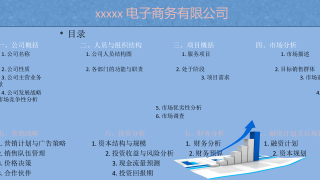
 2025-01-09 18
2025-01-09 18 -
xx生鲜APP计划书VIP免费

 2025-01-09 12
2025-01-09 12 -
跨境电商创业园商业计划书(盈利模式)VIP免费
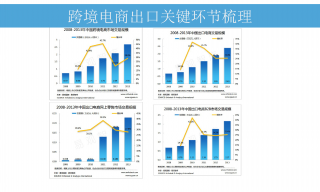
 2025-01-09 8
2025-01-09 8 -
跨境电商计划书VIP免费

 2025-01-09 13
2025-01-09 13 -
绿色食品电商平台项目计划书VIP免费

 2025-01-09 22
2025-01-09 22 -
农产品电子商务商业计划书VIP免费

 2025-01-09 9
2025-01-09 9 -
农村电商平台商业计划书VIP免费
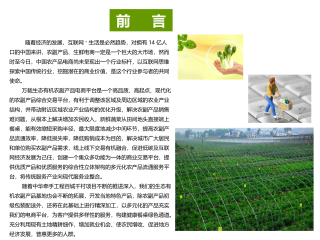
 2025-01-09 13
2025-01-09 13 -
生鲜商城平台商业计划书VIP免费
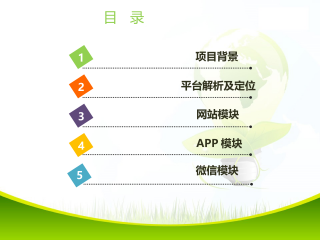
 2025-01-09 21
2025-01-09 21
作者:牛悦
分类:高等教育资料
价格:15积分
属性:59 页
大小:579.86KB
格式:PDF
时间:2024-11-19


